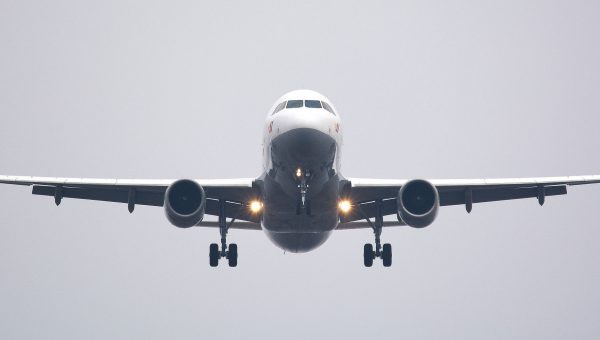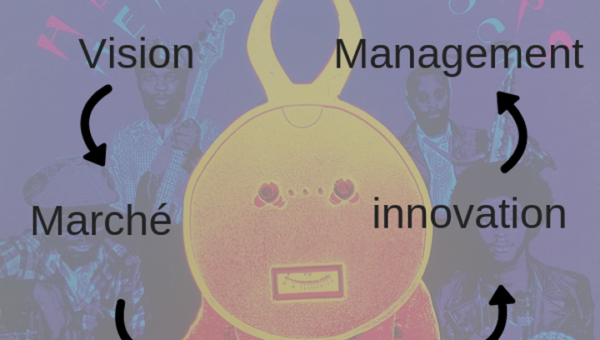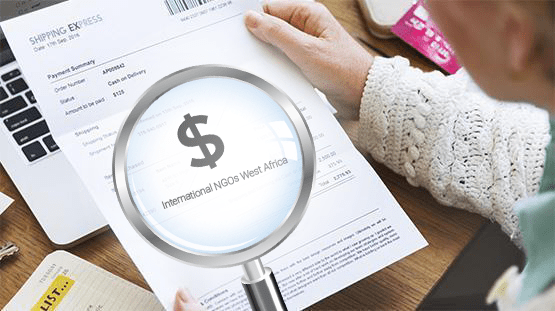Since 1990, every year, at least 20,000 people leave the African continent. The profile study of these migrants eliminates clichés (https://yannhazoume.com/cnuced-2018-un-regard-nouveau-sur-les-migrations-africaines/).
The intelligent exploitation of this diaspora’s potential has become an issue, both for their countries of origin and for the governments of the countries that host them and of which they have often become citizens (link to Part I of this article: https://yannhazoume.com/enfin-lafrique-a-lassaut-de-sa-plus-grande-richesseloin-de-son-soussol/).
First of all, the financial potential is important, of course, but is not, to me, the most important element.
Besides, the diaspora of professional skills, this resource that I called “grey gold” in Part I of this paper (link to Part I: https://yannhazoume.com/enfin-lafrique-a-lassaut-de-sa-plus-grande-richesseloin-de-son-soussol/), and which directly affects my activity, recruitment, has much broader issues: stronger and more lasting links with the continent/country of origin, contribution to long-term development, links with public policies and development plans, broader inclusion potential, social business opportunities…
It is not (always) necessary to reinvent the wheel
Out of curiosity, I went to look for what had been done in the past in exploiting the wealth pool of the diaspora of African competencies, with the intuition that ideas and projects could be recycled.
I found 2 interesting initiatives :
- SANSA, South African Network of Skills Abroad (SANSA), which, through an online platform, invites South African diaspora professionals to join a network. Once registered in SANSA, professionals are accompanied and can offer to train or assist their South African counterparts, or offer to assist them in their research. They can also facilitate business contacts and provide information on research not available in South Africa. SANSA members can also contribute to the transfer of technology to their home countries.
- This Research and Development Forum for Development through Science in Africa (RANDFORUM), in Kenya, implemented, several decades ago, various solutions for the repatriation of African professionals and intellectuals:
- Identify Africans with the skills needed at home, living abroad and willing to return home to work;
- Relocate professionals and scientists from “African countries in distress”, such as Liberia or Somalia at the time, to relocate them elsewhere in Africa, where they could continue to be productive, instead of having them move to Europe or the United States;
- Help organize their return home once the situation is normalized.
Great?
Yes, except that these two ideas date from the late 1980s and 1990s, and no trace of them can be found since the early 2000s, except in researchers’ books. A lack of an online trail that leads us to believe that both projects have died out of their beautiful deaths…
Conditions for success to be better considered?
Some hypotheses about why these relevant initiatives have not flourished:
- Unfortunately, they may have arrived too early. The dynamics underway on the African continent today and information and communication technologies make it possible to give substance to platforms and projects that we did not even dare to dream of yesterday.
- These projects required either strong inter-state cooperation or stable states. However, we were in a context and at a time when African regional institutions, and the states that could have carried out these projects, were weak. Once again, conditions are much more favorable today from this point of view.
- These projects were almost exclusively public, without partnerships with the private sector; without or with very little active involvement of the diaspora itself.
- Last but not least, the central question for countries was still the following: bring in the best-trained diaspora, yes, but for what purpose? Africa’s ambitious country development plans, backed by a true vision and a more favorable economic context, are quite recent. The same applies to the private sector: companies have only recently become involved in the systematic use of this diaspora.
Contemporary projects capitalizing on these achievements
Initiatives are now resuming and improving many of the contents of these old projects that had begun to clear a promising field.
Morocco, a pioneer, with the Marocains du Monde Initiative (MDM)
Morocco is the first African country to have understood and implemented, almost 30 years ago, a structured and proactive policy towards its diaspora.
Initiated by the establishment of institutions endowed with resources, to create and maintain links with Moroccans abroad (financial ecosystem in particular), the first efforts then extended to the identification and enhancement of the diaspora’s skills, for the country, through several digital tools and events. The goal: to enable all Moroccans, wherever they reside in the world, to contribute to the country’s progress, beyond the issue of whether or not they should return “to their country”.
MIDA (Migration for Development in Africa) programs
MIDA projects were launched in the 1990s by IOM (International Organization for Migration) in several countries such as Ghana and Senegal.
The objective is “to help African countries respond to the human resource deficiencies they face, by engaging Africans in the diaspora,” IOM’s Tauhid Pasha told Mediapart in an interview. They mobilize both African and host country governments; as well as members of the continent’s diaspora, encouraged to return “temporarily, for a long time or virtually”.
In Somalia, “more than a third of the government was at one time composed of former members of the diaspora, approached by MIDA,” says Florence Kim, IOM spokesperson.
In Ghana, the MIDA Ghana Health 2008-2012 project will have enabled the temporary return of several hundred health professionals to Ghana for the benefit of local health institutions. The results of this initiative led the Ghanaian government to formally include the contribution of its diaspora in its four-year health plan for 2012-2016. The role of its diaspora in the development of this country has subsequently increased considerably. The recent official statement by President Nana Akufo Ado making 2019 the year of the return of the Diaspora, with the full dedicated platform, www.ghanaiandiaspora.com/, are extensions of these years of project explorations related to the use of Ghanaian grey gold.
“MeetAfrica” project. After 2 years of incubation, this initiative to further develop the actions of diaspora members from Mali, Tunisia, Algeria, Cameroon, Morocco, and Senegal was launched in September 2018. The aim: to encourage diaspora executives (graduates of higher education) to start innovative businesses in their countries of origin, thus creating wealth and employment in Africa, while triggering a “brain gain”.
This project was funded in the amount of €1.7 million by the European Union and the International Centre for Migration Policy Development (ICMPD). In addition, co-financing was provided by the French Ministry of Europe and Foreign Affairs.
For this first edition, 80 out of 279 candidates were selected for technical and financial support. The project should be long-term, with a second edition already in preparation.
Attracting the diaspora of competencies, therefore, requires first of all the identification and qualification of its members, through databases and online platforms.
It is then necessary to communicate with them, create the link, then connect them with the professional opportunities, business opportunities and their carriers existing in the country, after more or less advanced matchmaking.
It is something that resembles, in many ways, an aspect of the recruiter’s job.
It is therefore only natural that I recently launched an advisory service offer for African governments and institutions wishing to formalize their strategies for identifying, qualifying and contacting their diaspora.
The above initiatives are mainly oriented towards the “diaspora of competencies”.
When both financial and skilled diasporas are working on the same project, it has a multiplier effect.
In a future interview (link to my youtube channel: https://www.youtube.com/channel/UCPXgCNkZ0nPMYE3z0zATu6g/videos), I will introduce you to the promoter of an original initiative from this point of view…
Sources:
- Les diasporas africaines accélératrices des économies du continent, Les cahiers du CIAN, Editions Eyrolles, 2019
- Surprise, la principale diaspora d’Afrique sub-saharienne en France est désormais…
- Isabelle Berrier : « L’Afrique vous appelle à Oran »
- Qu’est-ce que la diaspora africaine ?
- Projet de création d’une structure unifiée des diasporas africaines
- MeetAfrica – Un projet permettant aux jeunes de la Diaspora d’entreprendre dans leur pays d’origine
- About AFFORD
- L’expérience du programme MIDA





